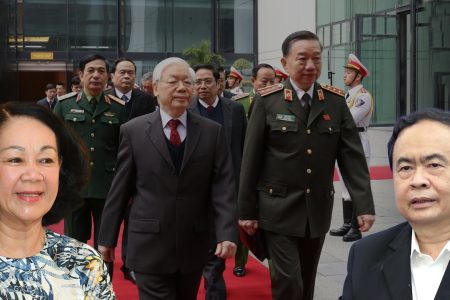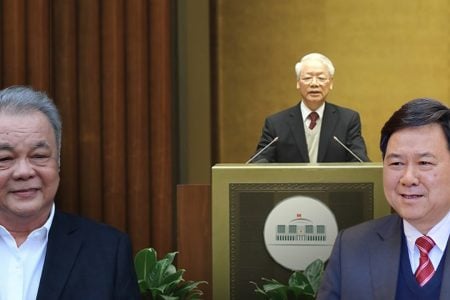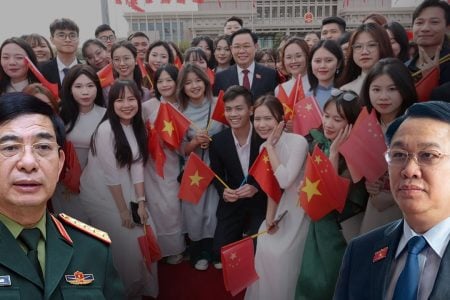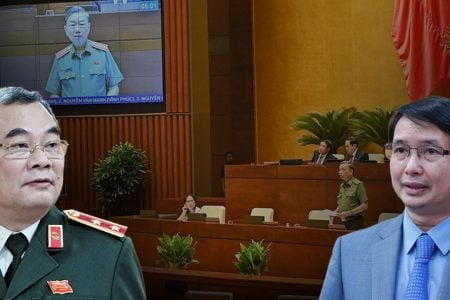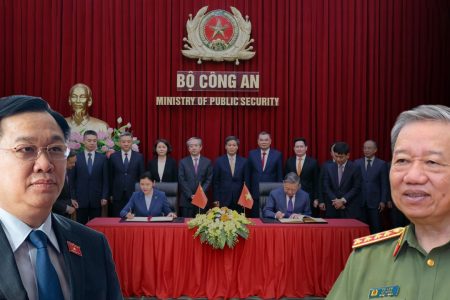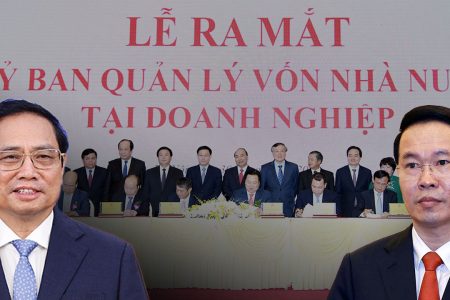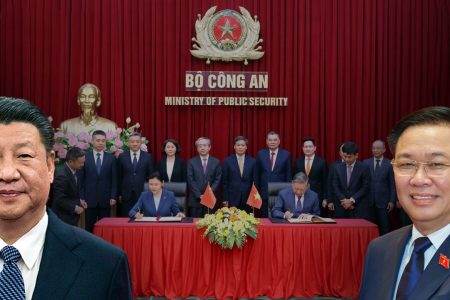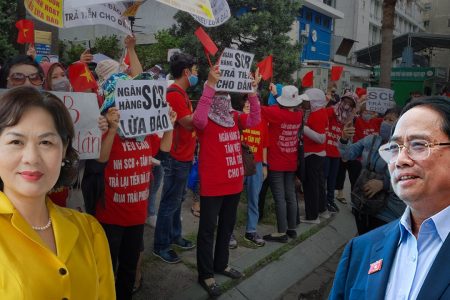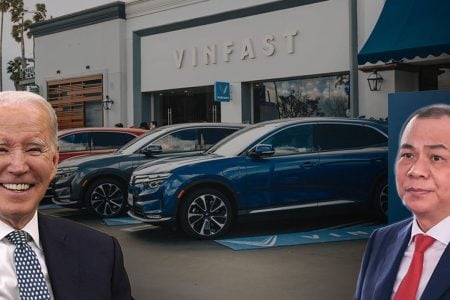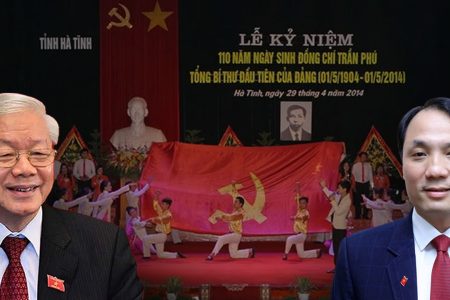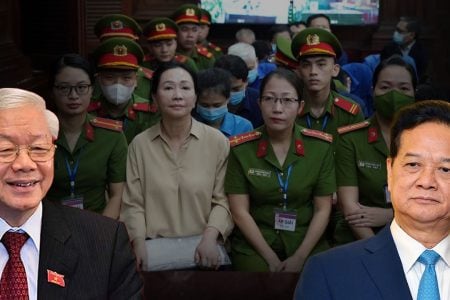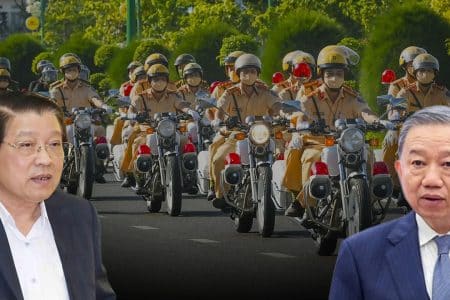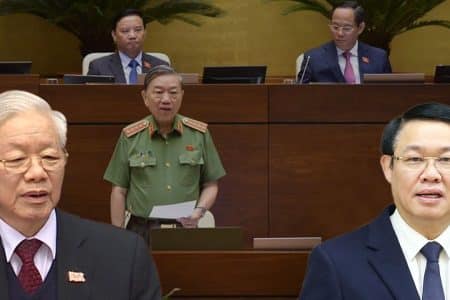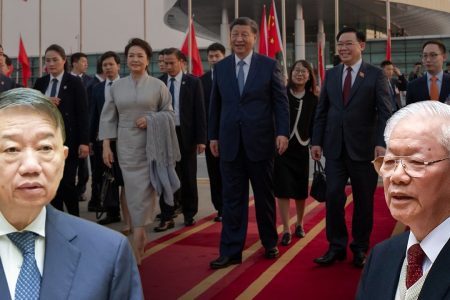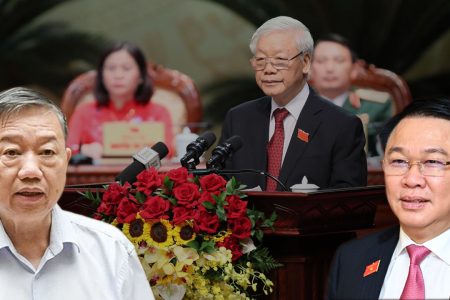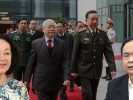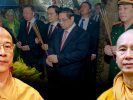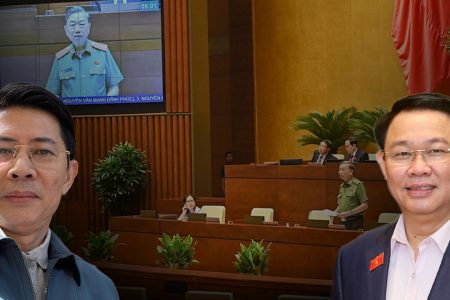
The new wave of Covid-19 outbreak in Vietnam continues to spread due to the impact of the Delta variant, especially in Saigon, although local governments have had to issue “social distancing” orders in many provinces, even applied a curfew in Saigon from July 26, 2021, an unprecedented measure in Vietnam.
Vietnam’s epidemic prevention policy now seems to no longer adapt to the increasingly complicated epidemiological situation. In the past time, in the state-controlled media as well as on social networks, there have been many controversies about how to change the way to prevent and control the epidemic effectively and especially to suit the capacity of Vietnam’s medical system, especially the health system of Saigon city, is currently at risk of being overwhelmed by the increasing number of new infections every day.
The most controversial issue from the beginning was still the isolation of the so-called F1, F0. Responding to RFI in Vietnamese on July 14, Doctor Vo Xuan Son working for EXSON International Clinic and author of many online articles on Covid-19 prevention in Vietnam, gave his opinion on this issue:
“I immediately saw that it was no longer relevant, because the current policy is that when an infected case is detected, which Vietnam calls F0, those who have been in close contact with F0 are called F1, and so on. Close contact with F1 is called F2. When an F0 occurs, people will track down the F1s and F2s to isolate. F0 was taken to the hospital, F1 was put in a general isolation area and F2 was isolated at home. Previously, when the number of F0 people, that is, infected, was small, it was possible to do so, but with a large number, there would not be enough room for isolation. In fact, the quarantine areas where F1s are concentrated are not qualified, so when entering there, people don’t have a good environment and there are a lot of infections. Thus, it is clear that the capacity of the State to isolate these people has not been good for a long time, not recently.
Recently, the government has loosened up a bit, meaning that F1 can be isolated at home and recently, it is piloting F0s to be isolated at home. But now, conditions are quite difficult to be isolated at home. I think that at present, the ability to do things the old way is no longer possible, the government is forced to change how, firstly, to meet the capacity, secondly, not to make it difficult about how to collect for isolation.
The second issue is social impact. Currently, the way to do it in Vietnam is: when an F0 person visits a certain store, the entire store is blocked. Everyone in that store, even if one doesn’t even need to be traced to that F0 or not, turns into F1. Doing so will stall all social activities and cause many difficulties for society. Meanwhile, after the blockade, the government has no support for the people and so it will be very heavy for the people to endure it. I think that policy must change, otherwise society will be very disturbed.”
Also according to Doctor Vo Xuan Son, Vietnam should not pay too much attention to the number of infections in general, but should pay more attention to the number of severe patients and the number of deaths:
“Statistics are not what matters, but which numbers we value. Currently, in Vietnam, people consider the number of infections as a measure for the epidemic, while the danger level is not the number of infections, but the number of deaths and Vietnam’s medical capacity lies in the patient’s heavy conditions. The way to fight the epidemic in Vietnam today is that all infected people are considered patients. Those who have not been infected, I don’t know what, are isolated, but there are some indications that they treat F1 people as a source of infection and need to be isolated from society, but people don’t care how those people live. People focus on the number of infections, not the number of severe diseases and the number of deaths.”
In addition to isolation, the “social distancing” measure under Directive 16, applied in Saigon from July 9 and then expanded to 16 other provinces in the South, also revealed a number of problems, such as the concept of “in case of necessity” or “with good reason” is not clearly defined, so interrogation at checkpoints can cause abuse of power, as commented by Mr. Le Quang Huy, a manager of a logistics company in Saigon:
“In general, people who work in the logistics industry like us are in the prioritized group of vaccinations, so I have already received the first injection and have a certificate when traveling. When presenting that paper, they let it go, let it go on. Such strict inspection is good, but the regulations in the directive are not very strict, such as ‘people only go to the street when it is really necessary or there is a good reason.’ Everyone feels their job is ‘necessary’ and they think that they go out for a ‘good reason,’ but at the checkpoints people rebuke it, so I see abuse is very likely.
Legally, this directive 16 somewhat restricts the freedom of movement of citizens. In other countries people go to protest, but in Vietnam that does not happen. In general, it also affects people’s personal and work life quite a lot. But at the moment, there is no other way but to rely on a vaccine to move towards herd immunity.”

Besides, there is also the fact that people in many places often have to be tested for Covid when moving from one locality to another, which costs money and takes a lot of time. Not to mention that in some places like Hanoi, people are crowded together to get tested, creating an additional risk of infection, as described by Tuoi Tre newspaper on July 21, 2021.
To avoid having to continue to issue restrictive measures and social distancing, Vietnam has no choice but to step up its Covid-19 vaccination campaign. But while the vaccine source is still in short supply, controversy has also broken out over the regulation of priority vaccination components. On this point, Doctor Vo Xuan Son said that vaccination should be given to the elderly and those with underlying diseases:
“In the case of such a shortage of vaccines, there must be a priority policy. Currently, the advantage in Vietnam seems to be relatively good, except for one thing, because the aim is to reduce the number of infections, so there is no problem with the number of serious diseases. If now the purpose of fighting the epidemic is to reduce the number of deaths and serious diseases, people will give priority to the elderly and those with underlying diseases. That is the number of people that if infected, the mortality rate is very high. Vaccines have been shown to reduce mortality, reduce the severity of symptoms caused by infection. But in Vietnam alone, that group is excluded, because of fear of reactions to vaccines, so it causes one thing or another. That is completely unscientific.
In addition, currently, the subjects who are vaccinated are gradually the same as the rest of the world, except for one case of factory workers. Out of fear of the number of infections, people are vaccinated against people who, if infected, are likely to have a very low rate of serious illness and death. So there’s a bit of a paradox in prioritizing vaccinations. But in general, regarding the first priority for the medical force, the anti-epidemic force, up to this moment, in Saigon, I see that most of the medical staff have been vaccinated. The anti-epidemic force, including the police, the army, and volunteers, of course, have already been vaccinated. But I see another priority goup that the State has not yet paid attention to, that is, workers on the sidewalk, street vendors, traders in the market, people working in services, or driving taxis, Uber, Grab… who are always in contact.”
For his part, Mr. Le Quang Huy also noted the confusion of the State in determining the prioritized groups of people for vaccination, not to mention the controversy about free or paid vaccination:
“Because the State wants to speed up the vaccination, there are still many mistakes in the organization work, there is still the phenomenon of mass gatherings, even jostling and jostling to win vaccinations, so it goes against advocate for distance. Secondly, people still have opinions and debates about prioritized groups to be vaccinated, because previously the State divided 10 priority groups to be vaccinated and recently the State added 16 priority groups. There are problems, for example, the bar association of Ho Chi Minh City and the bar association of Hanoi sent a written request that ‘we are also subject to priority vaccination.’ As a result, I find that because the Vietnamese government cannot proactively source vaccines, have to import them from abroad, or receive aid, it is quite confusing to identify those who are vaccinated first, or those localities which are prioritized.
Previously, when the State talked about the issue of “paid injection,” there was a wave of protests online, saying why other countries give free injections to people, even with things like incentives and promotions. So is not fair. The state has called on people to contribute money to buy vaccines, and now it’s paid services, what does that mean? But in fact, there are also some people who have money, are willing to pay for injection, even among my acquaintances and friends, they bring their whole family to the US to get vaccinated. Personally, I think this: if there are people who provide services, there is demand, of course there must be supply. But don’t take money from the fund people contribute to buy vaccines for paid injection, that’s not fair.”
According to Mr. Le Quang Huy, the Covid-19 vaccination also faces another obstacle, which is the anti-China sentiment that makes many people doubt the vaccines made in China, while the government is importing more vaccines from the northern neighboring country to supplement the vaccine source that is still lacking:
“In Vietnam, due to anti-Chinese sentiment, they are very allergic to Chinese vaccines. Previously, when China sent 500,000 doses to vaccinate its citizens working in Vietnam and to those who work or interact with Chinese, people reacted angrilly. Even in the last batch of injections for 10 priority groups of people, many people doubted and did not know which vaccine to give: AstraZeneca, aided by Japan or a vaccine from China? I see in Vietnam, probably no one wants to be vaccinated with Chinese vaccines, it is better not to be vaccinated, but not to have Chinese vaccines. In general, whether in the North or the South, people are inherently allergic to Chinese products, because Chinese goods have always been of bad quality, let alone a medicine, a vaccine to be injected into the body.”
Thoibao.de (Translated)




